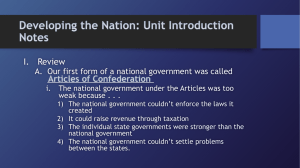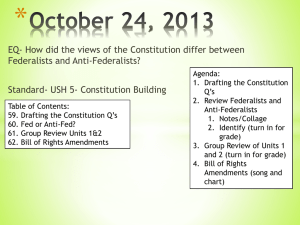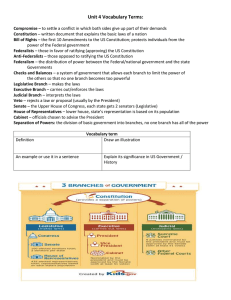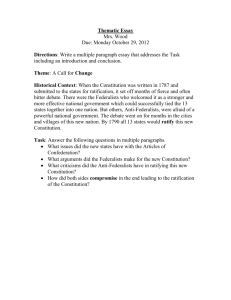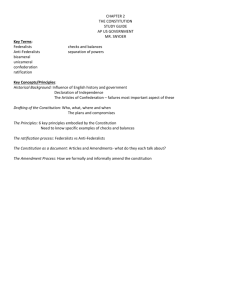17.037/17.038 American Political Thought Spring 2004 3/2/04 Student Lecture Notes
advertisement
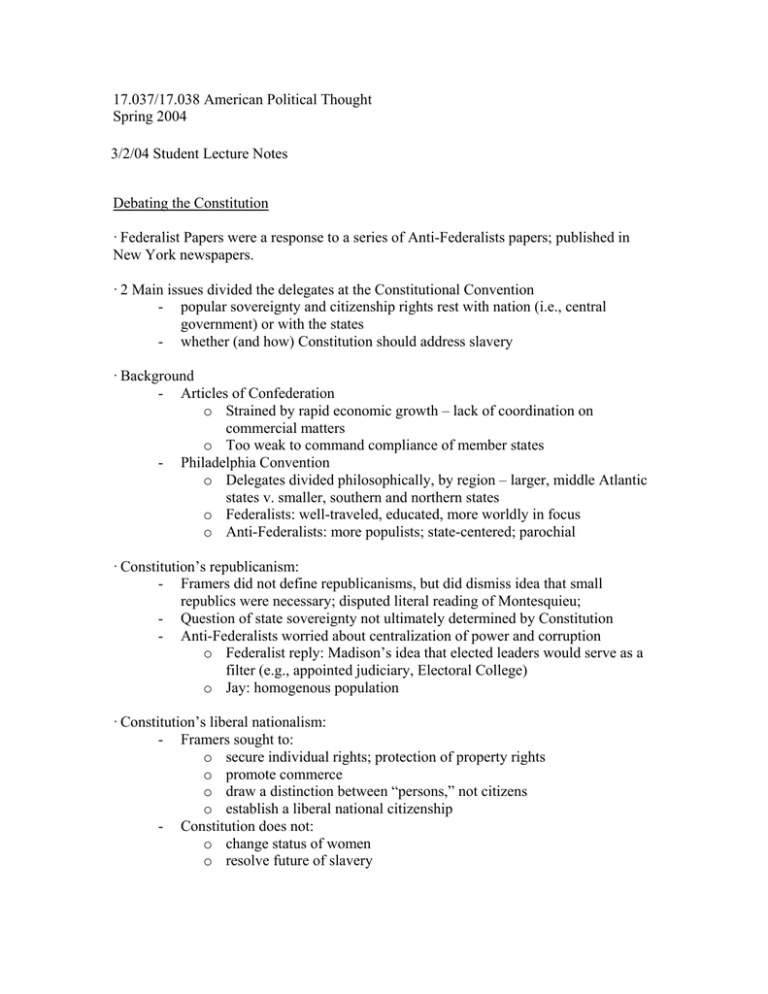
17.037/17.038 American Political Thought Spring 2004 3/2/04 Student Lecture Notes Debating the Constitution · Federalist Papers were a response to a series of Anti-Federalists papers; published in New York newspapers. · 2 Main issues divided the delegates at the Constitutional Convention - popular sovereignty and citizenship rights rest with nation (i.e., central government) or with the states - whether (and how) Constitution should address slavery · Background - Articles of Confederation o Strained by rapid economic growth – lack of coordination on commercial matters o Too weak to command compliance of member states - Philadelphia Convention o Delegates divided philosophically, by region – larger, middle Atlantic states v. smaller, southern and northern states o Federalists: well-traveled, educated, more worldly in focus o Anti-Federalists: more populists; state-centered; parochial · Constitution’s republicanism: - Framers did not define republicanisms, but did dismiss idea that small republics were necessary; disputed literal reading of Montesquieu; - Question of state sovereignty not ultimately determined by Constitution - Anti-Federalists worried about centralization of power and corruption o Federalist reply: Madison’s idea that elected leaders would serve as a filter (e.g., appointed judiciary, Electoral College) o Jay: homogenous population · Constitution’s liberal nationalism: - Framers sought to: o secure individual rights; protection of property rights o promote commerce o draw a distinction between “persons,” not citizens o establish a liberal national citizenship - Constitution does not: o change status of women o resolve future of slavery · Bill of Rights: reaffirmed liberal nature of Constitution. 2



